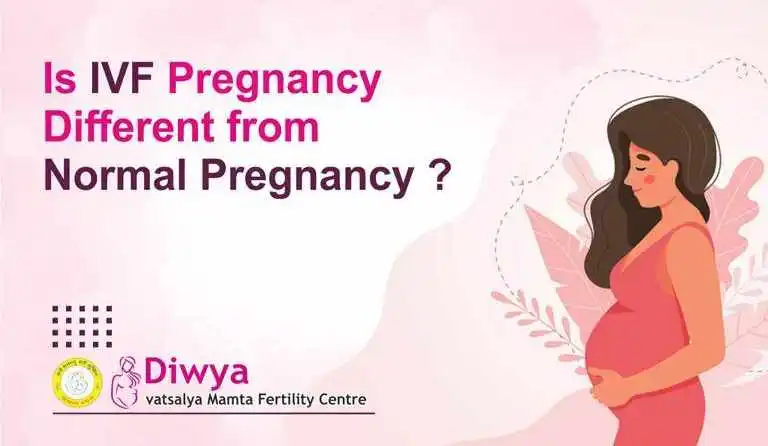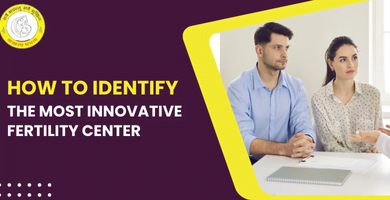Is IVF Pregnancy Different from Normal Pregnancy?

A child is a complete family. It’s not a matter of how you become parenthood. You can opt for IVF Treatment if natural conception is impossible. Although it may seem that assisted reproduction is far more common than natural conception, the truth is quite different. Indeed, In Vitro fertilization does not produce pregnancy.
In this Article
However, after the fetus is transferred into the womb, it is normal for the embryo to become fertilized. IVF pregnancy may differ from Normal Pregnancy for the first two weeks. But it will become the same after that.
IVF vs. Normal Pregnancy: Key Differences in the First Two Weeks
1. Awareness & Emotional Journey
- IVF Pregnancy: Couples track progress from embryo transfer, often experiencing heightened anxiety.
- Natural Pregnancy: Many aren’t aware until weeks later, reducing early stress.
2. Early Symptoms Post-Embryo Transfer
- Fatigue, bloating, and mood swings are common due to fertility medications.
- Mild cramping or soreness may occur but isn’t always pregnancy related.
3. OHSS (Ovarian Hyperstimulation Syndrome)
- Rare complications most cases resolve within weeks under supervision.
- Symptoms (severe bloating, nausea) mimic early pregnancy but require medical attention.
IVF Pregnancy Timeline: Weeks 2–10
- Positive Results & Monitoring: Frequent ultrasounds ensure fetal development and maternal health.
- Symptoms Align with Natural Pregnancy: Morning sickness, frequent urination, and hormonal changes emerge.
- Reduced Risk Post-12 Weeks: Miscarriage risks drop significantly after the first trimester, similar to natural conception.
IVF Success Rates & Age Factors
- Comparative Stats: IVF vs. natural conception success rates by age (include a table for clarity)
- Under 35: 40–50% success per cycle.
- Over 40: Natural conception rates drop to <10%, but IVF offers viable options with donor eggs or PGTA testing.
Conclusion
With complete dedication, We are one of the most trusted and affordable IVF Center in Patna and We also offer the most advanced IVF techniques and fertility techniques. Each patient is treated with the utmost compassion. All couples will benefit from our clinical expertise.
FAQs
After how many weeks IVF pregnancy is safe
Generally, an IVF pregnancy is considered safer after the first trimester, which is around 12 weeks. The risk of miscarriage is significantly lower after this point. However, every pregnancy is unique, and it’s essential to follow your doctor’s advice and attend regular check-ups.
Why is ivf classed as high-risk pregnancy
IVF pregnancies are often classified as high-risk due to several factors:
Higher chance of multiples: IVF can increase the likelihood of twins, triplets, or more, which comes with its own set of risks.
Underlying fertility issues: Couples undergoing IVF often have underlying fertility problems that could impact the pregnancy.
Medications used: The medications used in IVF can sometimes have side effects.
Age: Women who undergo IVF tend to be older, and age itself is a risk factor for pregnancy complications.
IVF pregnancy risk first trimester
The first trimester is the most critical period in any pregnancy, but especially for IVF. The risk of miscarriage is higher compared to natural conceptions. However, with proper care and regular check-ups, the chances of a healthy pregnancy increase.
IVF vs natural conception success rate
The success rate of IVF varies depending on several factors, including age, underlying fertility issues, and the number of IVF cycles. While natural conception is generally more likely to result in a pregnancy, IVF has helped many couples conceive who would otherwise be unable to.
Do you have more scans with IVF pregnancy
Yes, it’s common to have more scans during an IVF pregnancy. This is to closely monitor the development of the fetus and to detect any potential complications early on.
Can IVF pregnancy have normal delivery
Absolutely! Many women who conceive through IVF have normal, healthy deliveries. While there are increased risks, the majority of IVF pregnancies result in healthy babies.
IVF or natural conception over 40
The chances of conceiving naturally decrease significantly after 40. IVF can be a viable option for women over 40 who desire to have a child. However, it’s important to discuss the risks and benefits with a fertility specialist.



